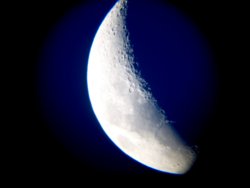 A study in Germany suggests that left to their own devices, people need more sleep in winter, and experience more REM (rapid eye movement) sleep. A team at the Charité Medical University of Berlin recruited 292 patients who had undergone hospital sleep studies. Such studies are regularly carried out on patients who experience sleep-related difficulties. They make use of a laboratory where patients are asked to sleep naturally without an alarm clock. The length, quality and type of sleep can then be monitored. Although sleep disorders in this population could potentially affect the results, this method of recruitment offered a large cohort, evenly spread throughout the year, allowing for the investigation of month-to-month differences.
A study in Germany suggests that left to their own devices, people need more sleep in winter, and experience more REM (rapid eye movement) sleep. A team at the Charité Medical University of Berlin recruited 292 patients who had undergone hospital sleep studies. Such studies are regularly carried out on patients who experience sleep-related difficulties. They make use of a laboratory where patients are asked to sleep naturally without an alarm clock. The length, quality and type of sleep can then be monitored. Although sleep disorders in this population could potentially affect the results, this method of recruitment offered a large cohort, evenly spread throughout the year, allowing for the investigation of month-to-month differences.
The team excluded certain patients eg those who were taking medications known to affect sleep, leaving 188 patients in the study. Most of their diagnoses showed no seasonal pattern, but it was noted that insomnia tended to be more commonly diagnosed towards the end of the year.
Even though the patients were based in an urban environment with low natural light exposure and high light pollution, which would be expected to interfere with any natural seasonal pattern, the researchers found subtle but striking changes as the seasons revolved. Total sleep time was about an hour longer in winter than in summer. REM sleep was 30 minutes longer in winter than in summer. Whilst the team acknowledged that these results would need to be validated in a population which experiences no sleep difficulties, they feel the seasonal changes may be even greater in a healthy population.
A co-author of the study, Dr Dieter Kunz, says “Seasonality is ubiquitous in any living being on this planet. Even though we still perform unchanged over the winter, human physiology is down-regulated, with a sensation of ‘running-on-empty’ in February or March. In general, societies need to adjust sleep habits, including length and timing, to season, or adjust school and working schedules to seasonal sleep needs.”
Robin’s comment: The idea of needing and indeed taking more sleep in winter, is very consistent with the traditional Chinese advice which I touch on in my Seasonal Tips pages.
(Seasonality of human sleep: Polysomnographic data of a neuropsychiatric sleep clinic. Frontiers in Neuroscience, 17 February 2023.)
